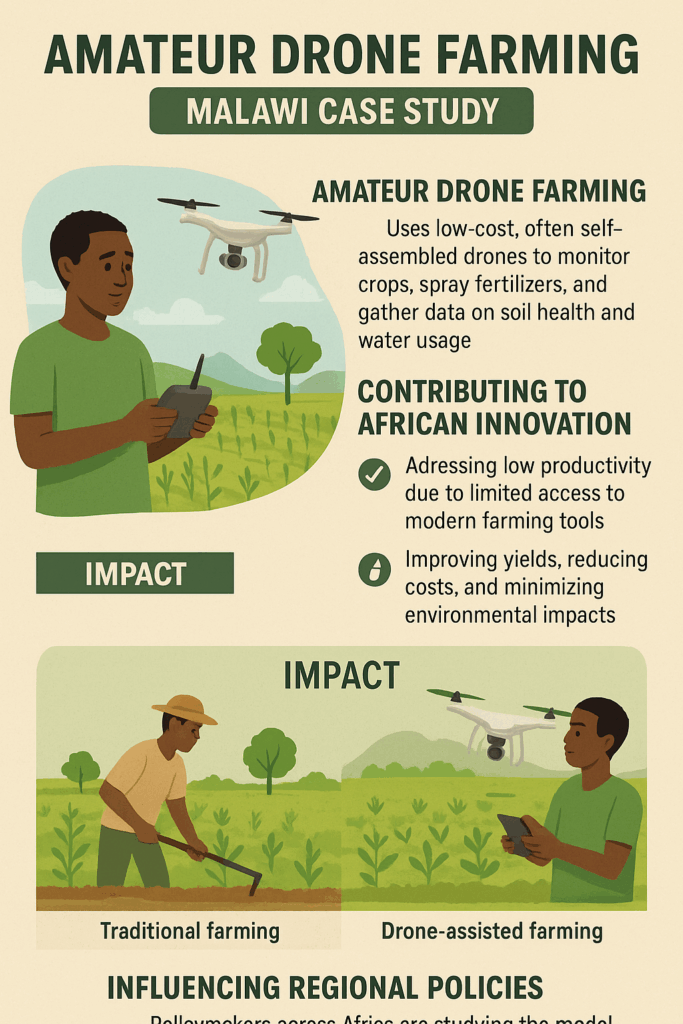Across the rural fields of Malawi, a quiet transformation is taking place as amateur drone farming gains momentum, offering fresh perspectives on how technology can reshape Africa’s agricultural future. What started as experimental efforts by young innovators and small-scale farmers has grown into a vibrant movement positioning Malawi as a case study in African innovation.
Amateur drone farming involves the use of low-cost, often self-assembled drones to monitor crops, spray fertilizers, and gather critical data on soil health and water usage. Unlike high-end drone systems used in industrial farming elsewhere, Malawi’s model thrives on improvisation and affordability. Local innovators repurpose parts from imported kits, discarded electronics, and even 3D-printed components to develop drones tailored for smallholder farms.
These grassroots initiatives are addressing one of Africa’s biggest challenges—low agricultural productivity due to limited access to modern farming tools. By leveraging drones, farmers in Malawi are reducing costs, improving yields, and minimizing environmental impacts through targeted pesticide spraying and precise irrigation.
Observers note that the country’s fertile ground for experimentation lies in its youthful population, where unemployed graduates and village-based innovators are finding ways to bridge gaps between technology and farming. University hubs and local cooperatives have begun organizing workshops to train farmers on basic drone operations, creating a new culture of tech-driven agriculture.
Malawi’s case is also influencing broader regional conversations. Policymakers across Africa are studying the model as a potential template for agricultural transformation. The appeal lies in its adaptability: a farmer with less than five hectares of land can still benefit from aerial monitoring without the prohibitive costs of traditional drone services.
The innovation is also sparking entrepreneurship. Some youths are now running small drone service businesses, offering crop monitoring and spraying services to local farmers at affordable rates. This is expanding rural employment opportunities while stimulating the tech ecosystem in unexpected ways.
Experts caution, however, that challenges remain. Limited regulatory frameworks, high import duties on drone components, and inadequate technical training threaten the scalability of the model. Yet, in Malawi, the resilience of amateur innovators continues to push boundaries. The farming drones, though basic, symbolize a bigger story—the democratization of technology across Africa.
As global food security pressures mount, Malawi’s experiment with amateur drone farming demonstrates that innovation does not always require expensive labs or billion-dollar investments. Sometimes, it begins in the hands of young farmers who are willing to reimagine the future with the little they have.
With its ongoing progress, Malawi’s journey is proving that African solutions to African problems can lead the way in global conversations on agricultural innovation.


